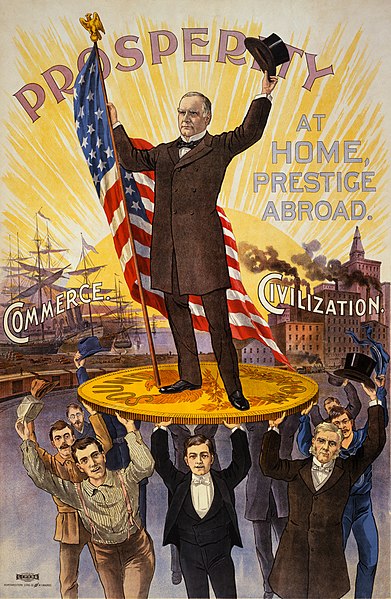Kshartle wrote:
Gumby wrote:
Kshartle wrote:Please adresses either my logic or PS' if you dissagree. I welcome being proven incorrect. Then I will actually learn something.
I'll try to prove your point. Here is how I can repay 110 credits when only 100 credits exist (and you start out holding all of them), without anyone else or any other money supply being involved:
Step 1: You lend me 100 credits (now I have 100 credits, you have 0 credits, and with interest I owe 110 credits)
Step 2: I buy some widgets from you for 45 credits (now I have 55 credits, you have 45 credits, and I owe 110 credits)
Step 3: I repay 55 credits of my debt to you (now I have 0 credits, you have 100 credits, and I owe 55 credits)
Step 4: I use the widgets to make some gizmos
Step 5: I sell the gizmos to you for 55 credits (now I have 55 credit, you have 45 credits, and I owe 55 credits)
Step 6: I repay the remaining 55 credits (now I have 0 credits, you have 100 credits, and I owe nothing)
Tada!!
But, that's a very simple micro example. And it only works if the economy remains healthy and the creditors are willing to spend money before all loans are due (as I did in the example above). If you don't like the word "credits" you can use "gold" just as well.
If only 100 ounces of gold exist and there is no possibility of getting more (which was the assumption) then how on God's green earth can you pay me back 110?
If I loan all 100 of my "credits" where do the credits come from to buy the widgets in step 2?
I cannot follow the logic. I am too dumb.
Whoops... I was assuming that you had some extra gold/credits in the bank vault and my (private sector) supply was limited. I'll revise...
Step 1: You lend me 100 credits (now I have 100 credits, you have 0 credits, and with interest I owe 110 credits)
Step 2: I buy some widgets from you for 45 credits (now I have 55 credits, you have 45 credits, and I owe 110 credits)
Step 3: I repay 55 credits of my debt to you (now I have 0 credits, you have 100 credits, and I owe 55 credits)
Step 4: I use the widgets to make some gizmos
Step 5: I sell the gizmos to you for 45 credits (now I have 45 credit, you have 55 credits, and I owe 55 credits)
Step 6: I pay 45 credits of my debt to you (now I have 0 credits, you have 100 credits, and I owe 10 credits)
Step 7: I use the widgets to make a few more gizmos
Step 8: I sell the gizmos to you for 10 credits (now I have 10 credit, you have 90 credits, and I owe 10 credits)
Step 9: I pay the last 10 credits of my debt to you (now I have 0 credits, you have 100 credits, and I owe nothing)
My point is that I can only repay the debt if you are willing to play ball and buy my goods/services.
Nothing I say should be construed as advice or expertise. I am only sharing opinions which may or may not be applicable in any given case.


 [/align]
[/align] [/align]
[/align] [/align]
[/align]